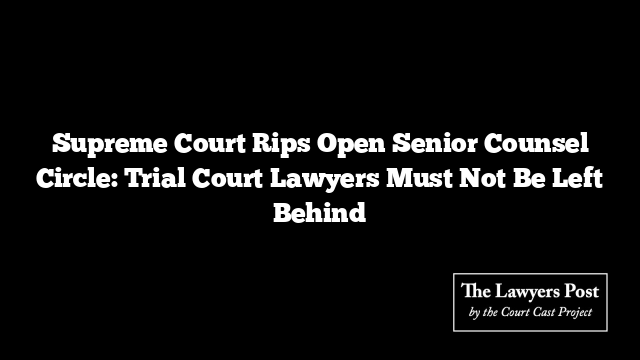In a striking departure from the old guard’s gatekeeping, the Supreme Court has ruled that senior advocate designations should not remain the privilege of a select few orbiting the higher courts. Those navigating the gritty trenches of Trial Courts, District Courts, and specialised Tribunals are just as worthy of donning the silk.
The top court has firmly dismantled the points-based system that had, for years, quietly filtered out many deserving names simply because they weren’t visible in the rarefied air of constitutional benches or appellate arguments. In doing so, it made one thing abundantly clear: seniority is not about geography, prestige, or profile—it’s about merit, wherever it’s found.
The judgment underscores that excellence in the law is not confined to the echo chambers of the High Courts. A lawyer fiercely arguing land rights in a rural tribunal, or doggedly advocating bail in a dusty district courtroom, must be given equal footing when it comes to consideration for the coveted senior designation.
“No monopoly,” the Court declared. Senior status, it said, must be a recognition of contribution—not a reward for proximity to power.
This decision is more than just an administrative course correction. It’s a quiet rebellion against elitism cloaked in procedural robes. The robes of seniority, the Court insists, should be earned in fire, not handed down in favor.
In short: it’s time the system respected the work done at the grassroots of justice, not just the arguments heard under the high domes.





